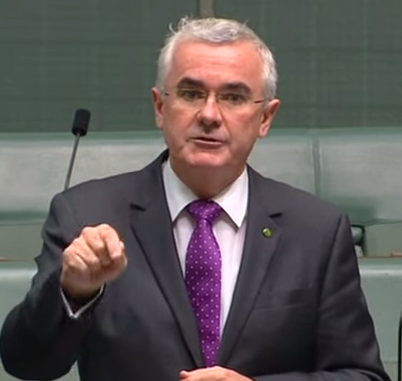High-profile federal MP Andrew Wilkie is advocating more support for allied health providers, saying their greater involvement in patient care helps free up hospital beds, speeds patient recovery and saves on health expenditure.
Mr Wilkie, the independent member for the Tasmanian seat of Denison, has long been an active participant in the health debate in his own state, and nationally.
He is co-chair of the parliamentary rural and remote allied health group.
His comments came at the launch of two reports conducted for Services for Australian Rural and Remote Allied Health (SARRAH) as part of an ANU research project.
One report found at least 37 regions had no early intervention private sector providers in crucial areas such as psychology, speech pathology and occupational therapy
The other report, by ANU Masters student Virginia Decourcy, revealed that Australians with three common health conditions – stroke, diabetes and osteoarthritis – could avoid surgery or recover quicker if they had access to multidisciplinary teams of health professionals.
Common surgeries, such as hip and knee replacements and diabetic limb amputations, could be avoided if patients were seen by allied health providers including physiotherapists, dieticians and podiatrists.
Also, the greater involvement of specialist allied health providers can reduce hospitalisation by as much as 30 days.
Key findings included –
A review of eight trials involving 2,241 diabetic participants in exercise and diet interventions delivered by dieticians, physiotherapists and exercise physiologists found the incidence of diabetes was reduced by 37% compared with 2,509 others receiving standard diabetic care.
A multidisciplinary team comprising a physiotherapist, occupational therapist, dietician, orthotist, social worker and rheumatologist, who manage patients with osteoarthritis at a Sydney hospital, provided interventions so effective that 15% of patients were removed from the waiting list for joint replacement surgery.
















